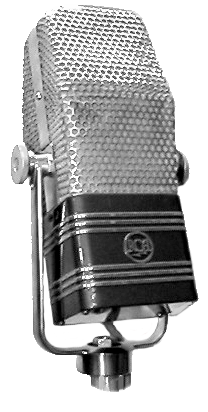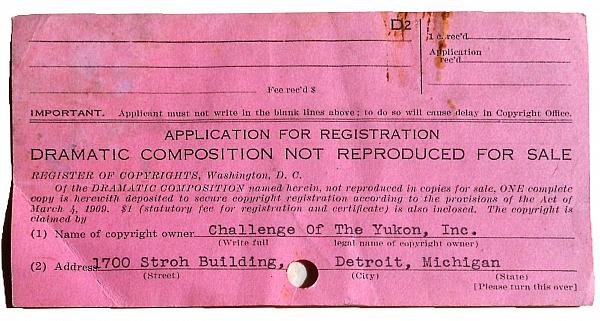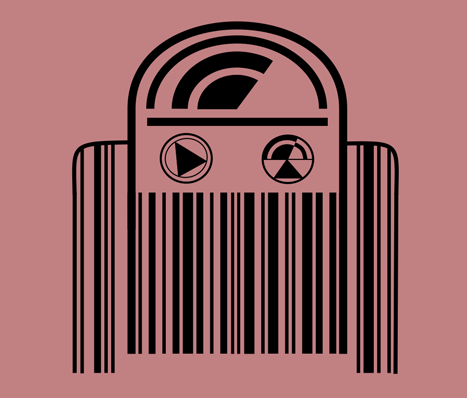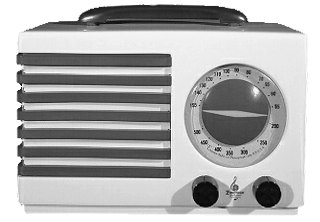
a few words about copyright...
(or "is it ok for me to perform this script?")
TLDR: Assume Copyright. But the value of the old radio scripts to present-day rightsholders is so negligible that simple basic performances have never caused legal rumblings.
JANUARY 2026 Update: see this helpful email from the US Copyright Office
 Far and away the most common question we've been asked since this website went online goes something like this: "Our hometown theater group/radio players/friends wants to perform (insert script name here) in front of a few people/massive crowd/radio station. Is this script copyrighted and will we get in trouble if we perform it?"
Far and away the most common question we've been asked since this website went online goes something like this: "Our hometown theater group/radio players/friends wants to perform (insert script name here) in front of a few people/massive crowd/radio station. Is this script copyrighted and will we get in trouble if we perform it?"
It's a measure of something -- the increasing value of intellectual property; the litigious nature of current society; the confusion of copyright laws; the ubiquity of the Internet -- that this has become the most common question. It's a good question and one that deserves discussion. But can we first even answer the question "is this script copyrighted?"
Once our answer to "Is this copyrighted?" was "it's hard to tell, but probably not." Copyright law has changed several times since this site went online, essentially in order to extend copyrights on existing works. One short answer often heard is that "anything published after the_year is still in copyright." Not true. A more accurate statement is "anything published BEFORE the_year is Public Domain." Works from the OTR era had copyrights that lasted 28 years plus a chance for a single extension. Copyright law changes since then mean if they filed that extension, then their works remained copyrighted for decades to come...but if not, their works entered public domain.
However, now we lean towards a different answer: "it's easy to tell, and probably YES." We're not lawyers, and this is not legal advice, but after reading fresh materials, a new distinction has cropped up: the "unpublished" work.
The majority of radio scripts appear to qualify as "unpublished works" and -- here's the nub -- unpublished works have copyright protection for 70 years beyond the death of their author.
The Copyright office says this:
"Publication is no longer the key to obtaining federal copyright as it was under the Copyright Act of 1909. The 1976 Copyright Act defines publication as follows:
'Publication' is the distribution of copies or phonorecords of a work to the public by sale or other transfer of ownership, or by rental, lease, or lending. The offering to distribute copies or phonorecords to a group of persons for purposes of further distribution, public performance, or public display constitutes publication. A public performance or display of a work does not of itself constitute publication.
It is clear that any form of dissemination in which the material object does not change hands, for example, performances or displays on television, is not a publication no matter how many people are exposed to the work. However, when copies or phonorecords are offered for sale or lease to a group of wholesalers, broadcasters, or motion picture theaters, publication does take place if the purpose is further distribution, public performance, or public display."
It seems to us, based on these governmental words, that the average mimeographed radio script was never published in the generally understood sense, nor was its original performance considered publishing. So unless its author died before 1938, that script is still under copyright. This is also the understanding of the Society of American Archivists (see link below.)
In fact, any original reference recording can also arguably be understood to be under copyright too, as an unpublished recording. On the other hand, many shows were syndicated via recordings, and it can be argued these recordings qualify as "publication" as they were issued to a third party for the purposes of further public performance. Don't be too quick to connect a radio script's copyright to the recording. Performances and scripts are two separate things. The script of a Shakespeare play is independent from any given performance. Securing the right to a new performance is not the same as the right to rebroadcast an existing performance.
In any case, protection-because-unpublished angle reverses the situation from what we might expect. Now, those few scripts published in books ("Best Radio Plays of 1938" for example) have a greater chance of being in the public domain than the scripts which weren't selected. If the book's copyright was not renewed, the contents - scripts - should be public domain.
Many people feel these unpublished, probably-untraceable scripts should fall under the category of "orphaned works" , abandoned by their owners and with little monetary value, and thus should be made more available for use, reuse, and adaption. Various proposals have been put forward, and much electronic ink has been written on the subject (just Google "orphaned works".) Here's one article that seems to us a sane overview of the situation: http://maradydd.livejournal.com/374886.html.
Should legislation ever come up to create this class of "orphaned works" it would be something worth watching, and perhaps supporting.
So, it seems most scripts are copyrighted. Can you perform them? Sure -- if you and the author/owner come to an agreement. That agreement can be "feel free", like it was many years ago when we made a phone call to the late "War of the Worlds" author Howard Koch. Or it can be a payment to playscripts.com, which is what the Koch estate now asks for. Or the signing of an agreement with Conde Nast lawyers that a Shadow episode you'll perform is not for profit or broadcast.
Or... they could say "no."
Or you can't figure out who the original rightsholder was, or to whom rights got transferred over decades.
Often there's hardly any way to know. What then?
Over the years we have usually suggested that small theater groups to perform their (free) shows to their (small) audiences. And to plead ignorance and ask forgiveness if someone complains. And they never have. It is our belief that the benefits of keeping OTR performance alive outweighs any "brand dilution" when a show is performed -- in fact the opposite. How does "Jack Armstrong" remain the "All-American Boy" unless people perform and hear his exciting adventures?
It may not be officially legal, but it feels noble.
We invite your feedback and input.
Here are some additional research and links you can review:
- Library of Congress Copyright Records: http://www.copyright.gov/records/
- How to Investigate the Copyright Status of a Work (Circular 22): http://www.copyright.gov/circs/circ22.pdf
- Contact LOC Regarding Having the Copyright Office Conduct a Search for You: http://www.copyright.gov/forms/search_estimate.html
- The Copyright Card Catalog and the Online Files of the Copyright Office: http://www.copyright.gov/circs/circ23.pdf
- An Introduction to Copyright and Unpublished Material from the Society of American Archivist
- Chris Headley has built a nice page of copyright explanations, mostly about newly-created works but also about existing works: http://wiht.link/copyright_guide
- Finally, for another set of observations (and more links) , visit this page by Kevin Scott.
We welcome any stories or input you might have on this subject. Use the contact link.
last update 1/23/2020 to smooth out language and add a TLDR

